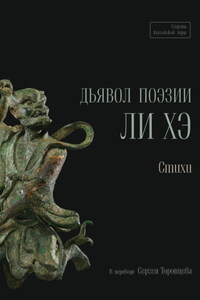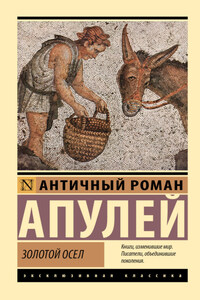SENATORS,
REPRESENTATIVES OF AMERICA:
That God rules in the affairs of men is as certain as any truth of physical science. On the great moving power which is from the beginning hangs the world of the senses and the world of thought and action. Eternal wisdom marshals the great procession of the nations, working in patient continuity through the ages, never halting and never abrupt, encompassing all events in its oversight, and ever effecting its will, though mortals may slumber in apathy or oppose with madness. Kings are lifted up or thrown down, nations come and go, republics flourish and wither, dynasties pass away like a tale that is told; but nothing is by chance, though men, in their ignorance of causes, may think so. The deeds of time are governed, as well as judged, by the decrees of eternity. The caprice of fleeting existences bends to the immovable omnipotence, which plants its foot on all the centuries and has neither change of purpose nor repose. Sometimes, like a messenger through the thick darkness of night, it steps along mysterious ways; but when the hour strikes for a people, or for mankind, to pass into a new form of being, unseen hands draw the bolts from the gates of futurity; an all-subduing influence prepares the minds of men for the coming revolution; those who plan resistance find themselves in conflict with the will of Providence rather than with human devices; and all hearts and all understandings, most of all the opinions and influences of the unwilling, are wonderfully attracted and compelled to bear forward the change, which becomes more an obedience to the law of universal nature than submission to the arbitrament of man.
In the fulness of time a republic rose up in the wilderness of America. Thousands of years had passed away before this child of the ages could be born. From whatever there was of good in the systems of former centuries she drew her nourishment; the wrecks of the past were her warnings. With the deepest sentiment of faith fixed in her inmost nature, she disenthralled religion from bondage to temporal power, that her worship might be worship only in spirit and in truth. The wisdom which had passed from India through Greece, with what Greece had added of her own; the jurisprudence of Rome; the mediaeval municipalities; the Teutonic method of representation; the political experience of England; the benignant wisdom of the expositors of the law of nature and of nations in France and Holland, all shed on her their selectest influence. She washed the gold of political wisdom from the sands wherever it was found; she cleft it from the rocks; she gleaned it among ruins. Out of all the discoveries of statesmen and sages, out of all the experience of past human life, she compiled a perennial political philosophy, the primordial principles of national ethics. The wise men of Europe sought the best government in a mixture of monarchy, aristocracy, and democracy; America went behind these names to extract from them the vital elements of social forms, and blend them harmoniously in the free commonwealth, which comes nearest to the illustration of the natural equality of all men. She intrusted the guardianship of established rights to law, the movements of reform to the spirit of the people, and drew her force from the happy reconciliation of both.
Republics had heretofore been limited to small cantons, or cities and their dependencies; America, doing that of which the like had not before been known upon the earth, or believed by kings and statesmen to be possible, extended her republic across a continent. Under her auspices the vine of liberty took deep root and filled the land; the hills were covered with its shadow, its boughs were like the goodly cedars, and reached unto both oceans. The fame of this only daughter of freedom went out into all the lands of the earth; from her the human race drew hope.
Neither hereditary monarchy nor hereditary aristocracy planted itself on our soil; the only hereditary condition that fastened itself upon us was servitude. Nature works in sincerity, and is ever true to its law. The bee hives honey; the viper distils poison; the vine stores its juices, and so do the poppy and the upas. In like manner every thought and every action ripens its seed, each according to its kind. In the individual man, and still more in a nation, a just idea gives life, and progress, and glory; a false conception portends disaster, shame, and death. A hundred and twenty years ago a West Jersey Quaker wrote: "This trade of importing slaves is dark gloominess hanging over the land; the consequences will be grievous to posterity." At the north the growth of slavery was arrested by natural causes; in the region nearest the tropics it throve rankly, and worked itself into the organism of the rising States. Virginia stood between the two, with soil, and climate, and resources demanding free labor, yet capable of the profitable employment of the slave. She was the land of great statesmen, and they saw the danger of her being whelmed under the rising flood in time to struggle against the delusions of avarice and pride. Ninety-four years ago the legislature of Virginia addressed the British king, saying that the trade in slaves was "of great inhumanity," was opposed to the "security and happiness" of their constituents, "would in time have the most destructive influence," and "endanger their very existence." And the king answered them that, "upon pain of his highest displeasure, the importation of slaves should not be in any respect obstructed." "Pharisaical Britain," wrote Franklin in behalf of Virginia, "to pride thyself in setting free a single slave that happened to land on thy coasts, while thy laws continue a traffic whereby so many hundreds of thousands are dragged into a slavery that is entailed on their posterity." "A serious view of this subject," said Patrick Henry in 1773, "gives a gloomy prospect to future times." In the same year George Mason wrote to the legislature of Virginia: "The laws of impartial Providence may avenge our injustice upon our posterity." Conforming his conduct to his convictions, Jefferson, in Virginia, and in the Continental Congress, with the approval of Edmund Pendleton, branded the slave-trade as piracy; and he fixed in the Declaration of Independence, as the corner-stone of America: "All men are created equal, with an unalienable right to liberty." On the first organization of temporary governments for the continental domain, Jefferson, but for the default of New Jersey, would, in 1784, have consecrated every part of that territory to freedom. In the formation of the national Constitution, Virginia, opposed by a part of New England, vainly struggled to abolish the slave-trade at once and forever; and when the ordinance of 1787 was introduced by Nathan Dane without the clause prohibiting slavery, it was through the favorable disposition of Virginia and the South that the clause of Jefferson was restored, and the whole northwestern territory – all the territory that then belonged to the nation – was reserved for the labor of freemen.








